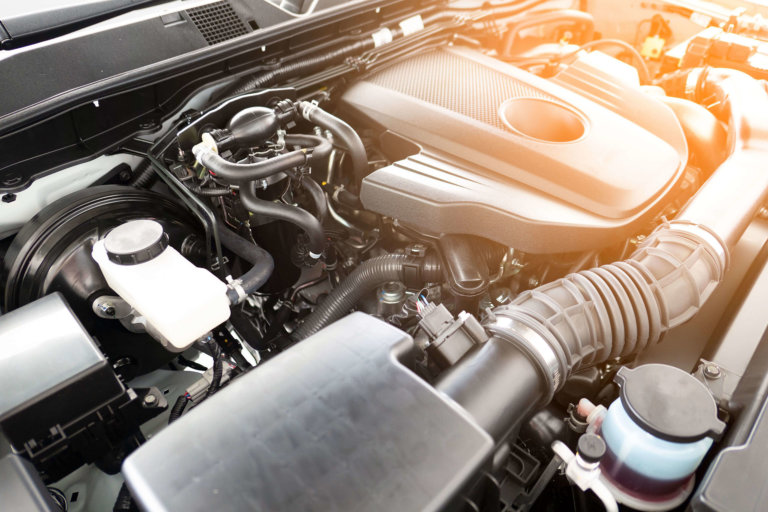By Jim Martinez, Esq.
BMW’s N63 Engine, which has been used to power its flagship 7-series, 5-series, X5, and X6 vehicles for years, has been plagued by numerous severe and expensive defects. As detailed in the class action complaint in the matter, Bang v. BMW of North America, et al., against BMW of North America, LLC, vehicles equipped with the 8-cylinder N63 engines suffered from excessive oil consumption, engine leaks, premature failure of critical engine components, and premature battery failure.
According to investigations by CCA’s attorneys, BMW’s internal records, and numerous service bulletins published by BMW North America, many N63 engine components are subject to premature failure, such as the turbo chargers’ auxiliary coolant pump, the engine oil pump, fuel injectors, the high-pressure fuel pump, vacuum pump, crankcase ventilation hoses, water pumps, valve seals, and numerous other components. Meanwhile, excessive oil consumption in N63 engines has been relatively commonplace and occurs when an engine uses an amount of oil that would generally be considered outside the acceptable range for any particular engine. Similarly, premature battery failure manifests itself through the need to replace a vehicle’s battery long before a similar vehicle would require a new battery.
While the problems with BMW’s N63 engines have since been extensively documented, the general public has been kept largely unaware of the issues which plagued the engines at the time the vehicles were made available for sale – and for a significant period of time thereafter. According to internal BMW documentation, however, BMW was aware of the issues as early as 2008 and concealed them from the public. Vehicles equipped with the 8-cylinder N63 engines include:
- 2009-2012 BMW 750i/Li Sedan
- 2010-2012 BMW ActiveHybrid 7
- 2009-2012 BMW 5 Series Gran Turismo
- 2010 -2013 BMW 550i
- 2011-2012 BMW 650i
- 2010-2013 BMW X5
- 2008-2014 BMW X6
- 2008-2014 BMW ActiveHybrid X6
BMW originally touted the N63 engines as requiring an oil change once every 15,000 miles or every two years. However, on multiple BMW internet forums, as well as on the National Highway Traffic Safety Administration website, drivers of N63 equipped vehicles complained of the constant need to top off their engines in between the 15,000-mile/2-year interval, necessitating frequent trips to BMW authorized repair facilities for service. Eventually, the oil consumption issues would also manifest in failed engine components, such as fuel injector and spark plug failure, oil leaks, and/or smoke emanating from the tailpipe, necessitating further, extensive repairs.
In fact, vehicles equipped with the eight-cylinder, twin-turbo engine N63/N63T engines were determined in a study published by Consumer Reports in 2015 to among the worst offenders in their class. From model years 2010 – 2014, N63 equipped BMWs comprised four of the top five vehicles that needed at least a quart of oil added between changes. According to the study, which considered nearly 500,000 vehicles across several makes and models the BMW 5 Series MY 2011-2014 consumed oil at a rate of 27 times more than the average vehicle. (Id.)
Drivers also noted drivability concerns, ranging from rough idling and cylinder misfires. More significantly, drivers of N63 equipped vehicles complained of serious engine malfunctions and engine shutdowns while in traffic, posing serious safety hazards to these drivers as well as fellow drivers and passengers of other vehicles on the road.
In N63 equipped vehicles, the premature battery failure occurs, in part, due to the fact that the engine fans run up to 10-15 minutes after the engine has turned off in order to adequately cool the engine. (in the words of one automotive journalist, “BMW’s N63 twin-turbo V8 eats batteries.”) The excessive battery drain occurs because the battery is drawing off of its own power and not being recharged by the engine, as happens during the normal operation of a motor vehicle.
As alleged in the Bang class action, BMW’s course of action was to quietly pass the oil consumption issue as a normal feature of high-performance vehicles. To that end, BMW issued instructions to its authorized repair facilities (dealerships) containing superficial fixes in an attempt to address the oil consumption issue. These Technical Service Bulletins (“TSBs”) first instructed BMW authorized technicians to top off N63 equipped vehicles with two quarts of oil – instead of the one quart recommended by the vehicle’s internal electronic system. While BMW originally touted its engine as requiring oil changes once every 15,000 miles or once every two years, a subsequent TSB increased the service interval to once per year or 10,000 miles. According to the Bang Complaint, BMWs TSBs would require operators of N63 equipped vehicles to top off their vehicles with “nearly 20 quarts of oil between the recommended 15,000 mile oil service intervals.” Also, to further obscure the heavy oil consumption suffered by N63 engines, BMW specified that its technicians should top off the oil with 2-quarts; rather than 1-quart, and (inexplicably) not create any documentation.
In an insincere attempt to mollify customers dissatisfied with the battery defect, BMW distributed a TSB instructing BMW authorized technicians to replace the battery at every oil change in the event that the battery had not been replaced within the last year. Though this battery change was free of charge while BMW’s basic warranty was still in effect, the cost of replacing the vehicle’s battery every 10,000 miles would fall squarely on the consumer once BMW’s four year/50,000 mile basic warranty expired.
The catastrophic issues plaguing the N63 engine affects consumers in many different ways. First, consumers are forced to present their vehicles to authorized repair facilities for constant service (at additional out-of-pocket cost), or to carry BMW approved oil in their vehicles in the event an oil top-off is required and the driver is not in range of a BMW authorized repair facility. However, by simply adding oil to the oil-thirsty engine never fixes the underlying defect in the cars. Furthermore, the consumer may be left with no choice but to purchase a new battery or pay thousands of dollars for repairs to more serious engine damage – such as the replacement of fuel injectors, high-pressure fuel pump, water pump, and valve seals. What is worse, once the engines fall outside of warranty, the vehicles can be subject to premature engine failure – resulting in repairs costing in excess of $10,000. Consumers are also hurt on the backend, as the resale value of their vehicles is dramatically decreased due to the oil consumption problems, engine issues, and frequent battery failure.
Fortunately, the expert lawyers at CCA can help. Our attorneys and automotive experts are well-versed in the N63 engine dilemma and would love to assist owners/lessees of N63 equipped vehicles. Please call us today to learn about how CCA can assist you – at no charge to you: (833) LEMON-FIRM.

